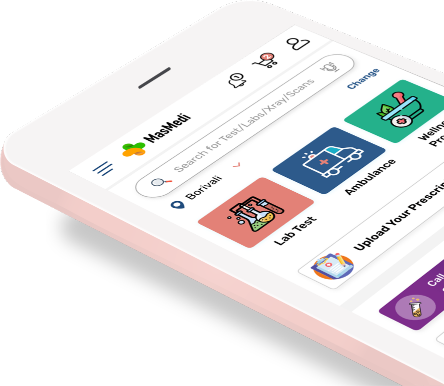Gender
Age Group
Male/Female
All Age Group
Bilirubin Total:- Bilirubin (bil-ih-ROO-bin) is a yellowish pigment that is made during the normal breakdown of red blood cells. Bilirubin passes through the liver and is eventually excreted out of the body. Higher than normal levels of bilirubin may indicate different types of liver or bile duct problems. Bilirubin Direct :- Elevated levels may indicate liver damage or disease. Higher than normal levels of direct bilirubin in your blood may indicate your liver isnt clearing bilirubin properly. Elevated levels of indirect bilirubin may indicate other problems. Bilirubin Indirect:- Elevated levels may indicate liver damage or disease. Higher than normal levels of direct bilirubin in your blood may indicate your liver isnt clearing bilirubin properly. Elevated levels of indirect bilirubin may indicate other problems. SGPT:- SGPT is released into blood when the liver or heart are damaged. The blood SGPT levels are thus elevated with liver damage (for example, from viral hepatitis) or with an insult to the heart (for example, from a heart attack). Some medications can also raise SGPT levels. Also called alanine aminotransferase (ALT). Complete Blood Count (CBC) :- A complete blood count (CBC) is a blood test used to evaluate your overall health and detect a wide range of disorders, including anemia, infection and leukemia. A complete blood count test measures several components and features of your blood, including: Red blood cells, which carry oxygen. Widal Slide Agglutination Test:- Widal Test is an agglutination test which detects the presence of serum agglutinins (H and O) in patients serum with typhoid and paratyphoid fever. When facilities for culturing are not available, the Widal test is the reliable and can be of value in the diagnosis of typhoid fevers in endemic areas. Urine Routine:- A routine urine culture detects the amount of germs (microorganisms like bacteria) present in the urine. Once a urine sample is collected, a technician will keep it in conditions where microorganisms can multiply. Normally, no more than a small number of germs will be in the urine if theres no infection. Peripheral Smear for Malarial Parasite (MP):- PERIPHERAL SMEAR FOR MALARIAL PARASITE (MP) Test in K.v.rangareddy. This test helps identify the presence of any malarial parasite in your blood. No special preparation is required for the test.
Fever Panel - 2 includes 9 Test(s)
best labs
Option Near Youlab comparison
As per your budgetAffordable
Price GuaranteedUNBIASED ADVICE
On LabsSUNDAY LAB
Labs available on SundaysTracking health status made easy with the app. Now available on both Google Play Store and App Store. Book health tests and access your smart reports and health trackers anytime anywhere.
